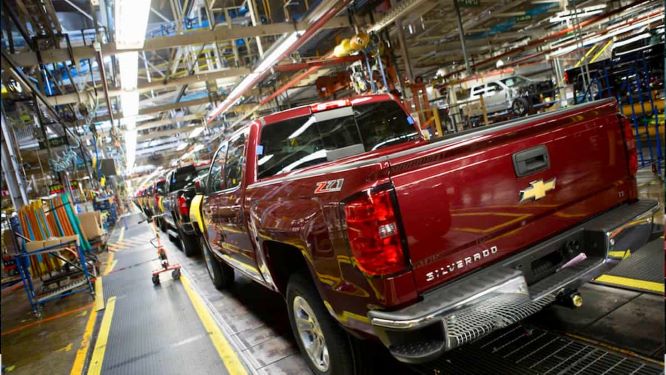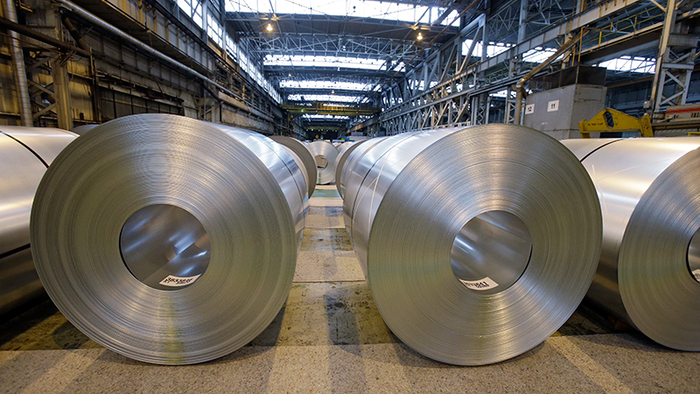Mexico Auto Sector Struggles to Meet New-Vehicle DemandMexico Auto Sector Struggles to Meet New-Vehicle Demand
It has been a challenging year for Mexican automakers tasked with implementing requirements of the year-old U.S.-Mexico-Canada Trade Agreement, including minimum-wage provisions.
July 14, 2021

MEXICO CITY – Mexico’s automotive industry is struggling to cope with the resurgence of demand for new vehicles, the global shortage of microchips and increased steel costs – hitting manufacturers’ bottom line – a key problem for a Mexico-U.S.-oriented export model.
It has been a challenging year for Mexican automakers tasked with implementing requirements of the year-old U.S.-Mexico-Canada Trade Agreement (USMCA), including minimum-wage provisions.
This has complicated the management of auto parts and supplies shortages, partly caused by a pause in production between March and April 2020 during government-mandated COVID-19-related isolation measures. Of the 24 car-making facilities in the country, 13 introduced partial lockdowns that forced production chains to operate with less staff.
The Mexican Automotive Industry Assn. (Asociación Mexicana de la Industria Automotriz – AMIA), meanwhile, warns the global semiconductor shortage will hit Mexican production. Its view is supported by the National Auto Parts Industry (Industria Nacional de Autopartes – INA), which estimates the low stock of semiconductors could have halted the production of 212,874 cars in Mexico between January and May this year, preventing Mexican automakers from taking full advantage of the economic recovery in the U.S. as the pandemic subsides.
“The automotive industry did not expect such a fast recovery, so they notified their semiconductor providers that we would not need that many. As a consequence, those companies allocated their production within other markets,” explains Guido Vildozo, senior manager -Americas light vehicle sales forecasting at market researcher IHS Markit.
“We have had a perfect storm during the pandemic because, apart from competing for chips with other industries like home appliances and computer makers, consumers have stayed at home and the demand for home appliances has increased. This means less semiconductors for car makers, who represent less than 10% of sales for chip-producing companies,” he added.
Engineer José Zozaya, president of AMIA, however, is optimistic that chip supplies, including from major exporter Taiwan, will become more robust as early as this fall: “We consider that the semiconductor shortage will very likely be eased in the second half of this year, we have confidence on it,” he tells WardsAuto.
Vildozo and others have a more sober outlook that points to a supply recovery for Mexico in the first half of next year. For Thomas Karig, former compliance officer and former vice president of corporate relations at Volkswagen Mexico, the problem could last not only for many more months, but even for years to come.
“The shortage isn’t going away in the short term and it means that the automotive companies will have to radically redefine their relationship to semiconductor makers: modify their purchase processes and file their requests well in advance, keep semiconductors in stock at the warehouses to make up for unexpected adjustments in production processes, have more than one provider and work closely with them, which is something that they weren’t used to doing,” he says.
Such contingencies will become more important in the future, Karig predicts: “The reality is that the automotive industry will rely more on this type of components – considering electric and autonomous cars – so the relationship between automotive companies and chip providers is going to become even more significant.”
Chip supplies have not been the only concern for automotive companies. The steel price bubble was caused by an increase of nearly 240% of U.S. HRC (hot-rolled coil) prices since August 2020, according to commodities data service S&P Global Platts. In 2020, the bottom price per ton of hot-rolled coil steel (pictured, below) was $480, but in early July this had risen to $1,807.

Rolled-steel (AP)
“The issue with steel is more complex as it is pretty expensive to run a steel mill due to the amount of energy required,” Vildozo says. “Mills closed to deal with low demand caused by the pandemic but, due to the dramatic recovery we have seen in some places a lot of steel purchases were made overnight. The steel suppliers are waiting to see how the situation evolves to know whether this will be a more permanent situation or not.”
Meanwhile, S&P Global Platts’ most recent market survey indicates international steel prices will continue to increase over the next few months.
These difficulties have arisen while Mexican industry has been adapting to USMCA rules of origin and labor requirements. This has entailed negotiations with trade unions, which have themselves been challenging.
For instance, a vote in April to renew General Motors’ collective contract in Mexico was scrapped and is now delayed until August for a vote by Union Miguel Trujillo López. This has raised concerns at the U.S. Trade Representative office.
The union and Mexico’s ministry of labor and social welfare have raised concerns about voting irregularities including the destruction of ballots and difficulties regarding the distribution of ballots to workers. The ministry has given the union until Aug. 20 to stage a fresh vote.
For consultant Karig, the USMCA rules of origin maybe particularly tough to implement.
“It is almost certain that authorities will come down to Mexico to check on the calculations made by automotive companies to comply with rules of origin, as well as those made by their suppliers,” he says. “Mexican car makers need to have that information at hand, well-documented and detailed otherwise it could mean really high fines.”
About the Author
You May Also Like